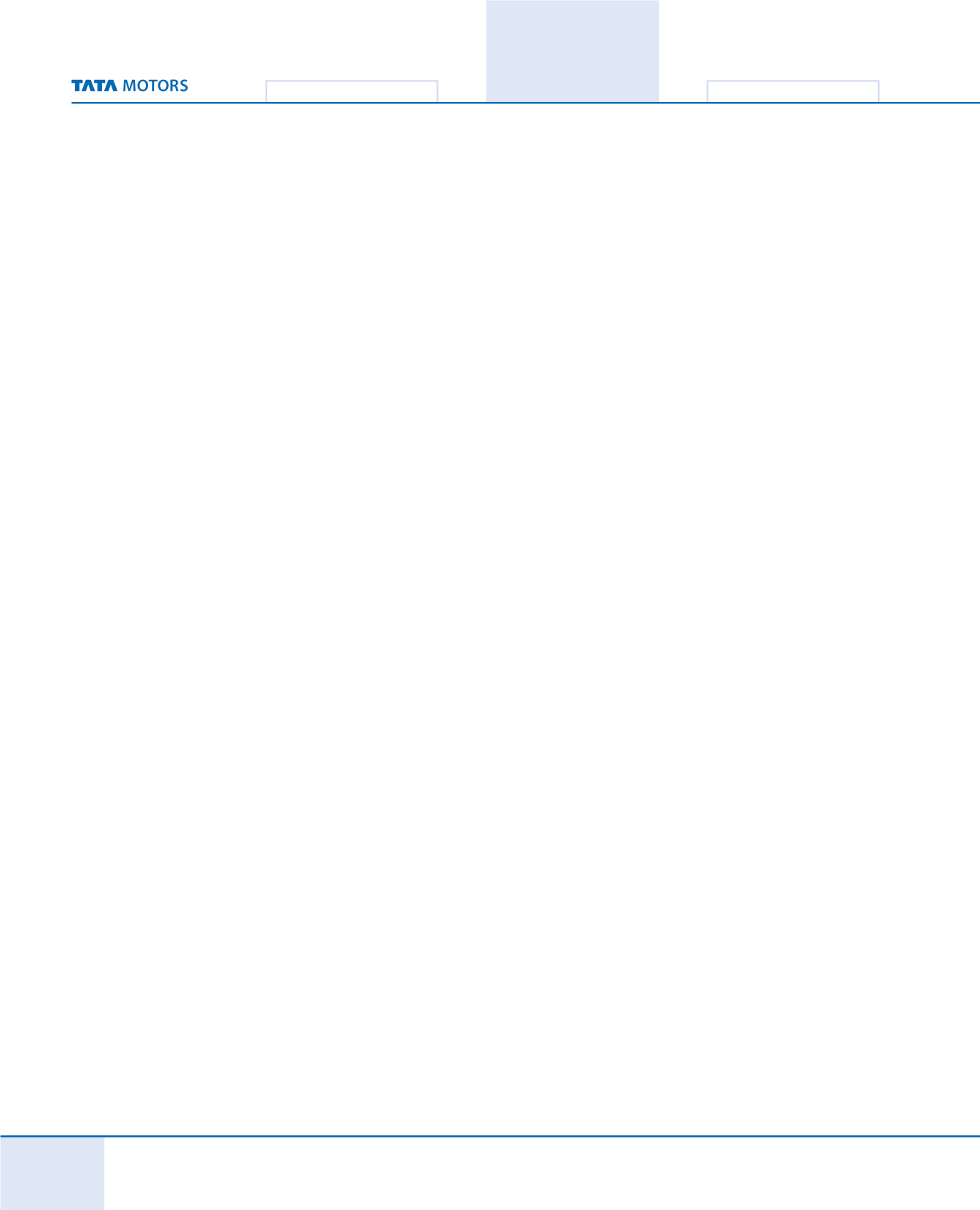
Statutory Reports
Corporate Overview
69th Annual Report 2013-14
96
Financial Statements
markets, such as China, India, Russia and Brazil, may not be sufficient
to mitigate a decrease in demand for the Company’s products in
mature markets in the future which could have a significant effect
on the Company’s financial performances.
Growing business through mergers and acquisitions:
The
Company believes that its acquisitions provide opportunities to
grow significantly in the global automobile markets by offering
premium brands and products. The acquisitions have provided
access to technology and additional capabilities while also offering
potential synergies. However, the scale, scope and nature of the
integration required in connection with acquisitions, present
significant challenges, and the Company may be unable to integrate
the relevant subsidiaries, divisions and facilities effectively within the
expected schedule. An acquisition may not meet the Company’s
expectations and the realization of the anticipated benefits may be
blocked, delayed or reduced as a result of numerous factors, some
of which are outside the Company’s control.
The Company will continue to evaluate growth opportunities
through suitable mergers and acquisitions in the future. Growth
through mergers and acquisitions involves business risks, including
unforeseen contingent risks or latent business liabilities that may
only become apparent after the merger or acquisition is completed.
The key success factors will be seamless integration and effective
management of the merged/acquired entity, retention of key
personnel, and generating cash flow from synergies in engineering
and sourcing, joint sales and marketing efforts, and management
of a larger business.
Business is seasonal in nature:
The sales volumes and prices
for the Company’s vehicles are influenced by the cyclicality and
seasonality of demand for these products. The automotive industry
has been cyclical in the past and the Company expects this
cyclicality to continue. In the Indian market, demand for vehicles
generally peaks between January and March, although there is a
decrease in demand in February just before release of the Indian
fiscal budget. Demand is usually lean from April to July and picks up
again in the festival season from September onwards, with a decline
in December due to year-end.
JLR business is impacted by the bi-annual registration of vehicles
in the UK where the vehicle registration number changes every
six months, which in turn has an impact on the resale value of
vehicles. This leads to an increase in sales during the period when
the aforementioned change occurs. Most other markets such as the
United States are driven by introduction of newmodel year products
which typically occurs in the autumn of each year. Furthermore,
western European markets tend to be impacted by the summer
and winter holidays. Markets in China tend to show higher demand
for vehicles around the Chinese New Year. The summer and winter
shutdowns of manufacturing plants also have a significant seasonal
impact on the Company’s cash flows. The resulting sales profile
influences operating results on a quarter-to-quarter basis.
Inability to protect or preserve
intellectual property:
With
respect to JLR, the Company owns or otherwise has rights to
a number of patents relating to the products the Company
manufacture, which have been obtained over a period of years. In
connection with the design and engineering of new vehicles and the
enhancement of existing models, the Company seeks to regularly
develop new technical designs for use in its vehicles. The Company
also uses technical designs which are the intellectual property of
third parties with such third parties’ consent. These patents and
trademarks have been of value in the growth of the business and
may continue to be of value in the future. Although the Company
does not regard any of its businesses as being dependent upon
any single patent or related group of patents, an inability to protect
this intellectual property generally, or the illegal breach of some
or a large group of our intellectual property rights, would have a
materially adverse effect on the Company’s operations, business
and / or financial condition. The Company may also be affected by
restrictions on the use of intellectual property rights held by third
parties and it may be held legally liable for the infringement of the
intellectual property rights of others in its products.
Inability to manage growing international business:
The
Company’s growth strategy relies on the expansion of its operations
by introducing certain automotive products in other parts of the
world, including Europe, China, Russia, Brazil, the US, Africa, and other
parts of Asia. The costs associated with entering and establishing in
new markets, and expanding such operations, may be higher than
expected, and the Company may face significant competition in
those regions. In addition, the Company’s international business is
subject to many actual and potential risks and challenges, including


